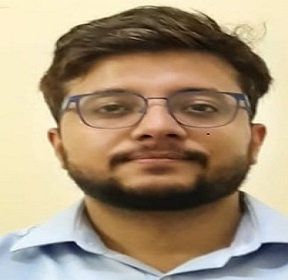
Ayush Pandey
Shree Guru Gobind Singh Tricentenary University IndiaTitle: Interstitial Lung Disease: - Progress and Problems
Abstract:
Interstitial lung disease involves all areas of medicine as it often occurs in patients with comorbidities or as a consequence of systemic diseases and their treatment. Typically, the physician is faced with a breathless patient, a diffusely abnormal chest radiograph, and a wide differential diagnosis. Progress has been made in using high-resolution computed tomography as the key investigation in characterizing the pattern and extent of the disease. Bronchoalveolar lavage is particularly important in excluding infection as a cause of diffuse lung infiltrates. Surgical lung biopsies have led to a new classification system for the range of histopathological patterns of disease that were previously known by the collective term cryptogenic fibrosing alveolitis. Problems persist in deciding when a surgical lung biopsy is clinically justified, in understanding the pathogenesis of these diseases, and in finding more effective treatments.
Progressive fibrosis is associated with worsening respiratory symptoms, lung function decline, limited response to immunomodulatory therapies, decreased quality of life, and, potentially, early death. Idiopathic pulmonary fibrosis may be regarded as a model for other progressive-fibrosing ILDs. Here we focus on other ILDs that may present a progressive-fibrosing phenotype, namely idiopathic nonspecific interstitial pneumonia, unclassifiable idiopathic interstitial pneumonia, connective tissue disease-associated ILDs (e.g., rheumatoid arthritis-related ILD), fibrotic chronic hypersensitivity pneumonitis, fibrotic chronic sarcoidosis, and ILDs related to other occupational exposures. Differential diagnosis of these ILDs can be challenging and requires detailed consideration of clinical, radiological, and histopathological features. Accurate and early diagnosis is crucial to ensure that patients are treated optimally.
Biography:
Ayush Pandey is currently a post-graduate resident in the Department of Pulmonary Medicine at SGT University, Gurugram, Haryana, India. He obtained a Bachelor of Medicine and Bachelor of Surgery (MBBS) at KIMSDU, Karad, Maharashtra, India. He obtained a Diploma in Clinical Counselling (DCC) from Apollo Hospitals, India. He did Post Graduate Diploma in Clinical Cosmetology (PGDCC) from the University of Greifswald, (ILAMED), Germany. He also did Post Graduate Diploma in Sexology and Psychosexual Counselling (PGDS) from WNHO Institute of Sexology (Affiliated to American College of Sexology, ACS), India
